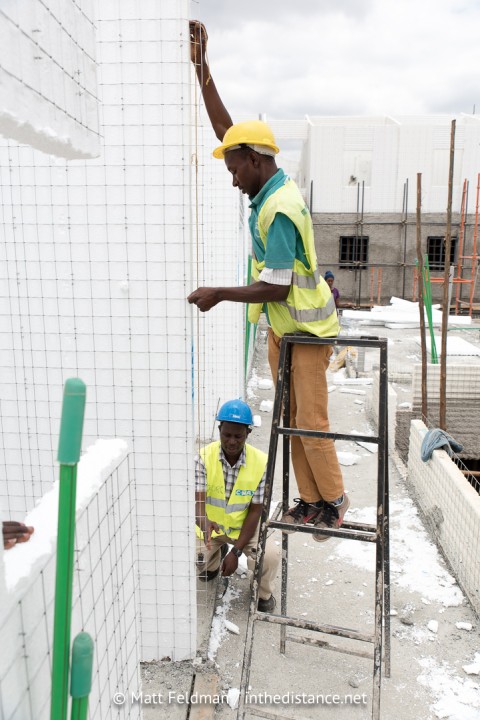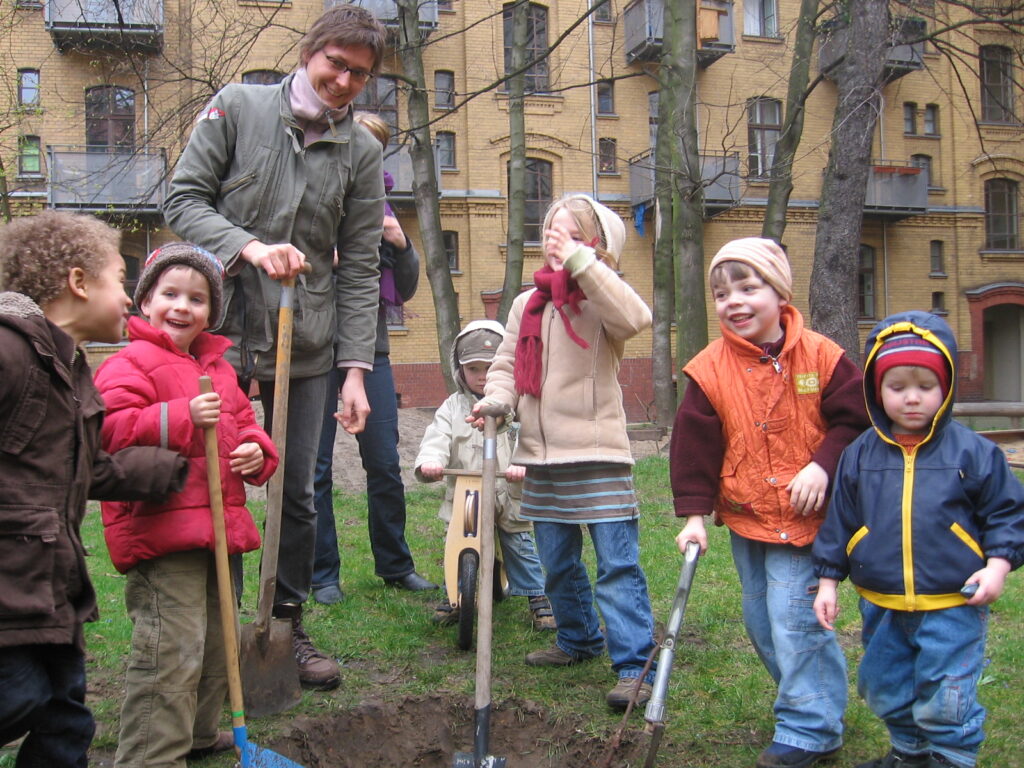Home ownership has traditionally been the foundation of the average Kenyan’s growth in net worth. Year over year, however, the ability of Kenyans to purchase land or homes has decreased. The World Bank estimated in 2017 that 6 out of 10 households in Nairobi are in the informal settlements1. In government administrations, current and previous, housing has been a cornerstone of its agenda, including the current “Big Four Agenda” yet availability and affordability continue to be sticky problems the government has yet to make progress against.
Housing is a community-wide problem that needs a community-wide solution. A complex solution that requires multi-prong strategies and partnerships to be sustainably achieved. Collaborative efforts between government, communities and the private sector are required which necessarily demands a new conversation; one that brings the intended beneficiaries into the board room. One mechanism for achieving this solution is to look to the cooperative movement, one of the oldest but most enduring forms of business in Kenya. Cooperatives, as community entrenched businesses, can be a catalyst that can revolutionize the housing sector through community-oriented, market-based solutions.
Today when Kenyans think of cooperatives, their thoughts are influenced by historical models associated with agriculture. With origins tracing back to the 20th century, cooperatives were largely identified through the agricultural sector and were quasi-parastatal entities. The seminal Sessional Paper No. 6 of 1997 on “Cooperatives in a Liberalized Economic Environment” provided a new policy framework in Kenya for cooperatives after the liberalization of the economy while the revision of the Cooperative Act in 1997 brought more freedom and autonomy to the operation of cooperative enterprises. Today, financial cooperatives, known as SACCOs, provide almost 90 percent of Kenya’s total housing finance, and regularly surpass banks and other mortgage providers in providing construction loans to Kenyans2. Housing co-operatives are currently more than 23,000 in number, possess more than Sh700 billion in savings, and are leading in the effort to construct affordable homes. These two forms of cooperatives are in a prime position to partner with the Government of Kenya to fulfill the goal of creating new opportunities for homeownership across the country.
That’s not even the whole story. There are more opportunities for cooperative inclusion in mitigating the housing crisis. What’s preventing cooperatives from participating, even more, is the lack of market understanding that service cooperative businesses are a growing part of the economy and can play a role in mitigating the housing crisis while simultaneously bringing more Kenyans into the solution by creating jobs.
Global Communities, an NGO that has supported cooperative business for over 60 years, is working with local craftsmen and women to take a bold new step into the future by promoting the service cooperative business model as an innovative solution to the housing shortage in the country. In the year 2017, Global Communities, supported by funding from USAID, worked with a group of fundis to come together and form the first-ever construction service cooperative in Kenya – FundiTech.
FundiTech: The rise of a rapid-growing service cooperative in the construction sector in Nairobi.
In Nairobi’s Babadogo area in Eastlands, a group of resilient, skilled, motivated and qualified artisans, formerly belonging to an informal association, came together and formed a construction service co-operative called FundiTech to provide a platform for fundis to attain sustainable, decent work in the construction sector. Entirely owned and operated by fundis in the Babadogo area all projects that FundiTech takes on benefit the members and profits are reinvested in themselves. Registered in December 2017 with the support and technical assistance of the USAID/EMIRGE program, they are the first service cooperative registered in more than 30 years in Kenya. FundiTech is demonstrating the important role and value-add that the service sector can have in advancing the Big 4 Agenda overall, particularly in the housing sector. With a membership of over 30 qualified artisans and new members set to double their membership, FundiTech’s business model is not only innovative in Kenya but it presents a model for inclusive growth across the housing sector. Members of FundiTech are both the solution to and the beneficiaries of mitigating the housing crisis.
FundiTech’s model is (a) based on representative democracy and cooperation among artisans allowing them to work together to win contracts together and succeed together; (b) it gives them a unified voice and platform for enhanced representation with which to market their services in the sector, (c) creates new jobs with decent, regular pay within the sector (d) and utilizes financing from a SACCO, a cooperative, creating strength and unity in the cooperative sector. In addition to their existing business plan. The very notion that this is possible and that the financing, the talent, and the residents are all native to Kenya is not just innovative, it the very essence of Buy Kenya, For Kenya. This ‘alternative’ model differs from a traditional single owner or limited liability business model in that every member is also a part-owner of the business and participates in the oversight, the management, and the profits of the business, all of which are determined using democratic practices.
According to a World Council of Credit Unions study3, cooperative businesses have lower failure rates than traditional corporations and small businesses, after the first year of start-up, and after five years in business. Further, worker-owned businesses such as cooperatives have been shown to perform better during economic downturns because worker-owners have more proverbial ‘skin in the game4.’ These facts illustrate that cooperatives have been shown to be more resilient than traditional forms of business and their entrenched position in the community provides an additional guarantee that the voice of the community is being heard.
FundiTech’s goal is to redefine the way skilled and reliable fundis are integrated in the building and construction industry and to address the cost of building quality and affordable housing units for low-to-middle-wage Kenyans. This clarity of purpose combined with their commitment to the co-operative principles ensures that they deliver a package that integrates housing, social and economic concerns into its business operations.
All is however not rosy for FundiTech. One of the challenges members are facing is being able to stay alive while competing with other players in the housing sector who often tend to be monopolies. The Kenyan market is also new to the idea of service cooperatives, and so it takes members longer to prove themselves and show competitiveness in the market.
Building on the success of Global Communities’ previous cooperative programs, the USAID funded Cooperatives Leadership Engagement Advocacy and Research (CLEAR) Program, launched in 2018, provides technical assistance to service cooperatives such as FundiTech to improve their business performance and to enhance their networks with the aim of improving education and learning among cooperators. The goals is to see cooperatives integrated throughout the Kenyan economy, proving that cooperative businesses are more competitive because of their community orientation and commitment to member-based success.
The growth of the FundiTech model can be attributed to several factors, which has led to the generation of trust capital: its deep commitment to the co-operative’s purpose; commitment to the seven co-operative principles, but most importantly it thrives as a multi-stakeholder business because of its dedication to its members and its strong business plan.
FundiTech has filled the unemployment gap by providing sustainable opportunities for fundis to gain access to the construction market and participate in large-scale projects at an affordable rate to the consumer, while improving their own lives and livelihoods. The members themselves decide what the priorities of FundiTech are and how the business should be run. As a result, members of FundiTech, are linked to jobs in line with their specialty and expertise, and are regularly encouraged to develop new business opportunities for the cooperative, which are rewarded through commissions.
Steer Business to Cooperative Enterprises to achieve affordable housing for Kenyans
Global Communities, through the CLEAR program, is working with cooperatives to leverage the service economy, and to conceptualize cooperatives as a learning space as well as an enterprise – tapping into education, which is one of the core cooperative principles.
With the recent transformation of Kenya’s economy5 service cooperatives are no longer a marginal phenomenon. Together with social cooperatives, service cooperatives employ almost 20 million people worldwide: 11.5 million worker-members and 6 million self-employed producer-members active in industry and services6.
As Kenya continues to explore solutions to its housing challenges, service cooperatives such as FundiTech are beginning to attract attention for their capacity to create affordable houses, stable jobs and business ownership opportunities that will reduce unemployment, and promote sustainable, inclusive housing solutions.
About Global Communities: Global Communities is an international development and humanitarian aid organization that operates in approximately 25 countries globally and works closely with communities worldwide to bring about sustainable change that improves the lives and livelihoods of the vulnerable.
References
- https://www.reuters.com/article/us-kenya-housing/kenya-needs-two-million-homes-to-curb-slum-explosion-world-bank-says-idUSKBN17E1Y3 ↩︎
- https://documents.worldbank.org/curated/en/405151556935423068/pdf/Kenya-Affordable-Housing-Finance-Project.pdf ↩︎
- World Council of Credit Unions. Annual Statistical Report. 2007. https://www.woccu.org/documents/2007_Statistical_Report. Accessed July 2019. ↩︎
- Harvard Business Review. “Why the US needs more worker-owned companies.” August 2018. https://hbr.org/2018/08/why-the-u-s-needs-more-worker-owned-companies. Accessed July 2019. ↩︎
- https://www.businessdailyafrica.com/news/World-Bank-confirms-Kenya-lower-middle-income-status/539546-2773210-qs1wquz/index.html ↩︎
- https://www.ilo.org/global/publications/books/WCMS_662410/lang–en/index.htm ↩︎
This article was originally published on The Co-operative – a magazine of the Co-operative Alliance of Kenya



